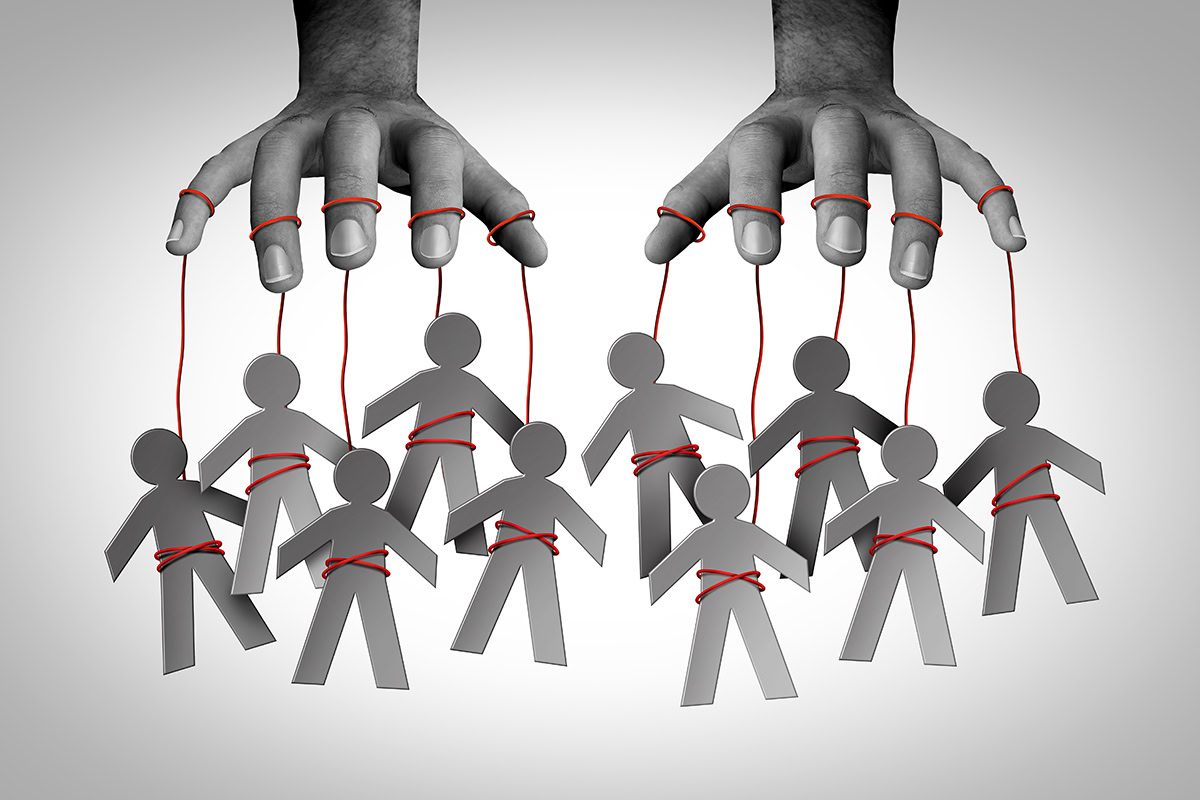Sign #1: Extreme Self-Importance
Narcissists think very highly of themselves, according to the Mayo Clinic. They may constantly brag or try to be the center of attention. But remember: Self-importance alone isn’t a sign of a narcissist—it doesn’t mean the person has narcissistic personality disorder. What sets narcissists apart is the persistence of the behavior and the negative ways it tests their platonic and romantic relationships.Sign #2: Lack of Empathy
Narcissists struggle to care about the feelings of others. They recognize these emotions intellectually, but don’t feel them. They may seem cold, dismissive, or uncaring when others are in distress. Again, being occasionally self-absorbed doesn’t make someone a narcissist. People with NPD have a chronic disregard for the well-being of others.Sign up for our free newsletter
Legit tips and cool copes, delivered straight to your inbox.
By completing this form you are signing up to receive our emails and can unsubscribe anytime.
Sign #3: Constant Need for Admiration
Narcissists crave admiration. Their self-esteem often depends on others’ praise. They may go to great lengths to ensure they’re in the spotlight, using accomplishments or material possessions to draw admiration. The vulnerable narcissist, in particular, is obsessed with how others perceive them. When they feel unappreciated, they get defensive or try to manipulate others.
Sign #4: Dangerous Ambition
Not all ambitious people are narcissists. But the combination of ambition and NPD can quickly turn toxic. Narcissists not only want to win, but they also want to be seen as superior to everyone else. They often pursue success at the expense of others. They’re unable to tolerate competition or collaboration. Another key sign of a narcissist: Their fragile sense of self-worth means they need others to fail for them to feel validated.
Sign #5: Grandiosity Paired with Fragility
Narcissists may appear confident, but they’re hiding a fragile ego. Criticism, even if it seems very minor, can deeply wound them. This leads to disproportionate anger or defensiveness. The paradox of outward arrogance and internal insecurity is a key sign of NPD.
Sign #6: Manipulative Behaviors
The narcissist’s favorite tool is manipulation. Gaslighting, lying, undermining others … they happily bend reality to suit their needs. These behaviors can be subtle or highly obvious, and serve to elevate the narcissist’s sense of superiority while diminishing the self-esteem of others. This goes beyond being a jerk. It’s a calculated pattern of control.
Sign #7: Lack of Generosity
Narcissists often feel entitled to special treatment and are less likely to be generous. They get angry or resentful when they don’t get what they feel they deserve. This sense of entitlement can make them very demanding, as they often expect others to cater to their needs without offering much of anything in return.
Sign #8: Materialism and Status Obsession
For narcissists, material possessions and social status are often measures of their self-worth. One study linked narcissism to conspicuous consumption, meaning people with NPD often prioritize expensive, flashy items to bolster their image. This obsession with appearances can lead to shallow relationships, focused more on external validation than genuine connection.
Sign #9: Controlling Behavior
Narcissists may attempt to control, gaslight, or otherwise emotionally manipulate their relationships. The abuser may isolate their partner, undermine their sense of reality, or use threats to maintain control. Narcissistic abuse is driven by the abuser’s fragile ego and need to dominate the victim. All abusers are narcissists, of course, but the emotional damage can be just as severe. Learn how to safely leave a narcissist.
How Therapists Diagnose NPD
Diagnosing NPD is challenging because narcissistic traits can exist on a spectrum. It’s definitely not a mental health condition you can diagnose on your own.
Some people exhibit certain narcissistic behaviors without having full-blown NPD. Other cases may go undiagnosed for life, even as it erodes and even destroys relationships. The key is recognizing patterns of behavior over time, particularly when it involves manipulation, lack of empathy, and a persistent need for admiration.
READ NEXT: 7 Causes of Grief You’d Never Suspect
Narcissistic Personality Disorder: Symptoms and Causes. Mayo Clinic. Mayo Clinic. April 6, 2023.
Miller JD et al. The Nonlinear Association Between Grandiose and Vulnerable Narcissism: An Individual Data Meta-Analysis. Journal of Personality. Wiley Online Library. December 3, 2021.
Narcissistic Personality Disorder. Cleveland Clinic. Cleveland Clinic. August 3, 2023.
Narcissistic Personality Disorder: Differential Diagnosis. American Psychiatric Association. August 2019.
Cheng JT. Are Narcissists Hardy or Vulnerable? The Role of Narcissism in the Production of Stress-Related Biomarkers in Response to Emotional Distress. Emotion. December 2013.
Urbonaviciute G. Do Narcissists Lack Empathy? It Depends. Society for Personality and Social Psychology. November 19, 2021.
Burgmer P et al. I Don’t Feel Ya: How Narcissism Shapes Empathy. Kent Academic Repository. 2021.
Brown TA et al. Ethics and Personality: Empathy and Narcissism as Moderators of Ethical Decision Making in Business Students. Journal of Education for Business. July 8, 2010.
Watts A et al. The Double-Edged Sword of Grandiose Narcissism: Implications for Successful and Unsuccessful Leadership Among U.S. Presidents. Psychological Science. October 2013.
Menkes J. Narcissism: The Difference Between High Achievers and Leaders. Harvard Business Review. July 4, 2012.
Bockler A et al. Social Decision Making in Narcissism: Reduced Generosity and Increased Retaliation Are Driven by Alterations in Perspective-Taking and Anger. Personality and Individual Differences. January 2017.
Sedikides C et al. Narcissism and Conspicuous Consumption. Current Opinion in Psychology. August 2022.
Maciantowicz O. Is Narcissistic Anger Fueled by Neuroticism? The Relationship Between Grandiose and Vulnerable Narcissism, Neuroticism, and Trait Anger. Current Psychology. May 10, 2018.
Grabmeir J. Narcissism Linked to Aggression in Review of 437 Studies. Ohio State News. May 25, 2021.
Day NJS et al. Pathological Narcissism: An Analysis of Interpersonal Dysfunction Within Intimate Relationships. Personal Mental Health





